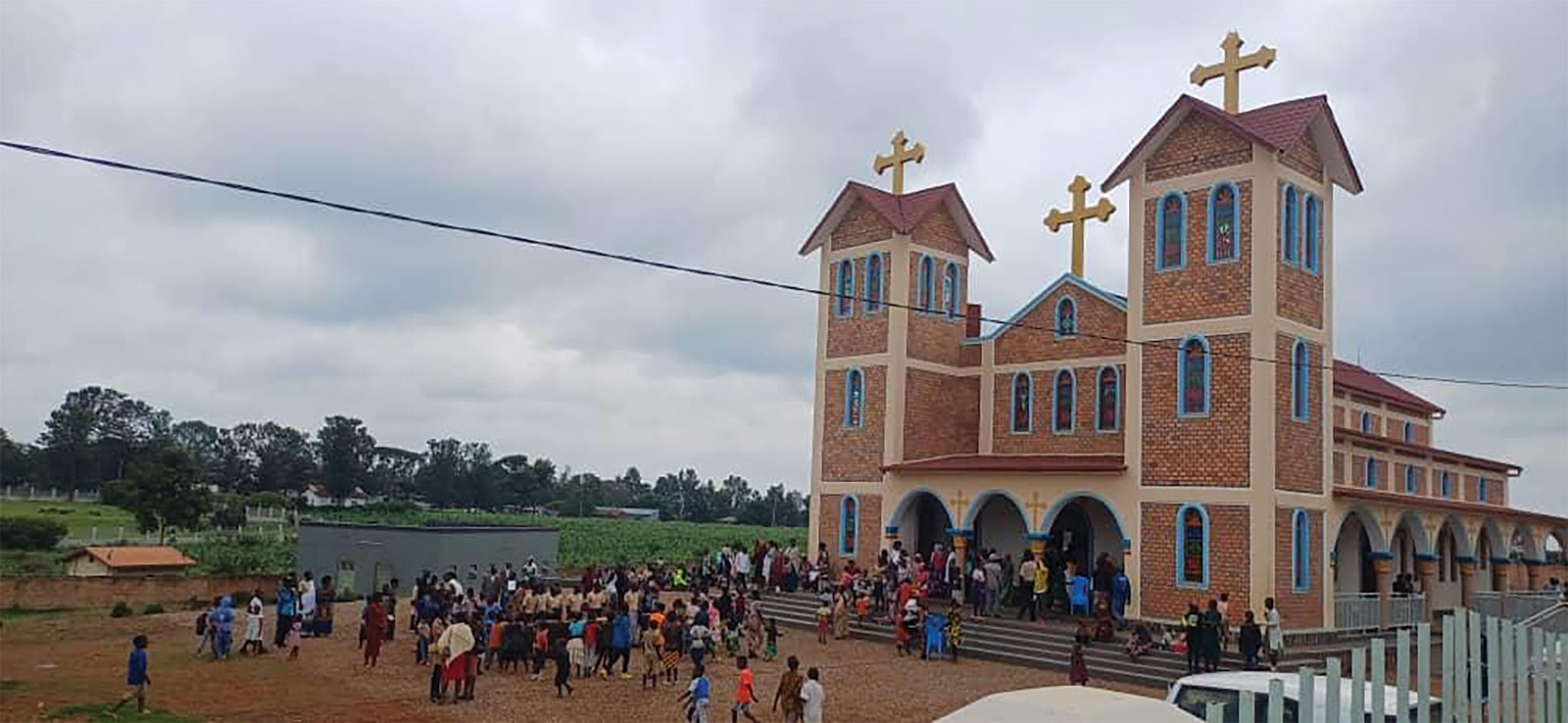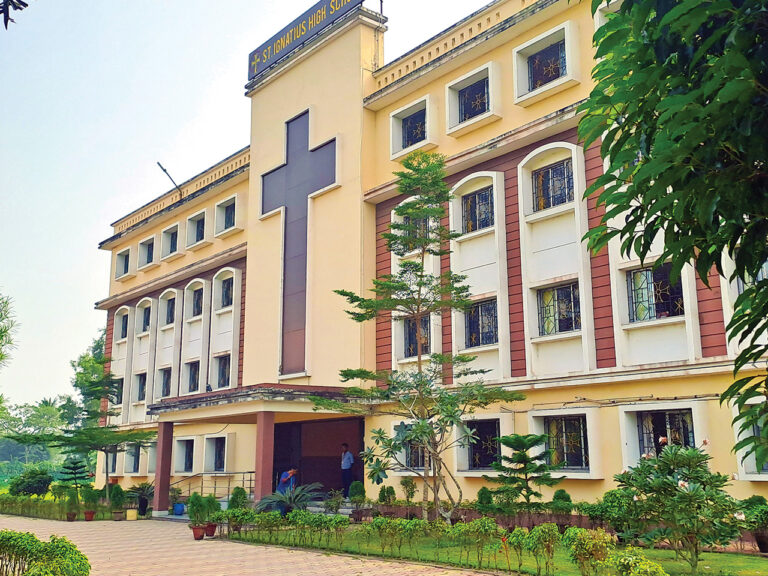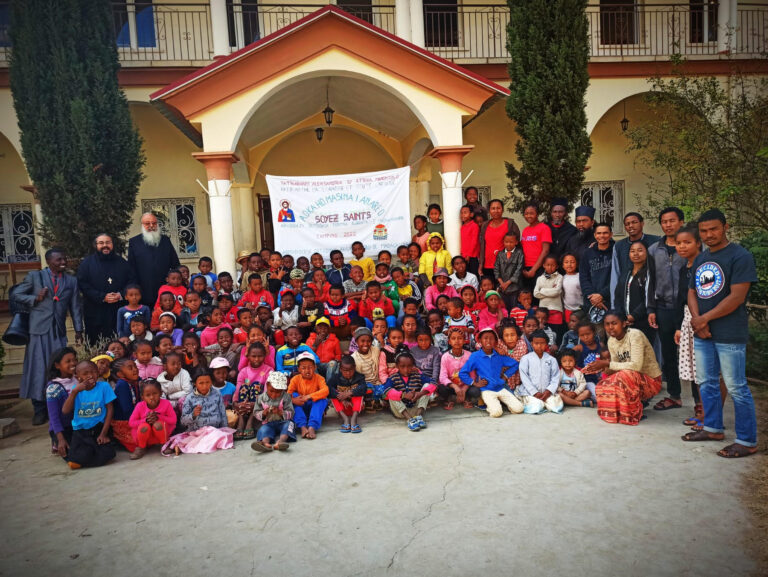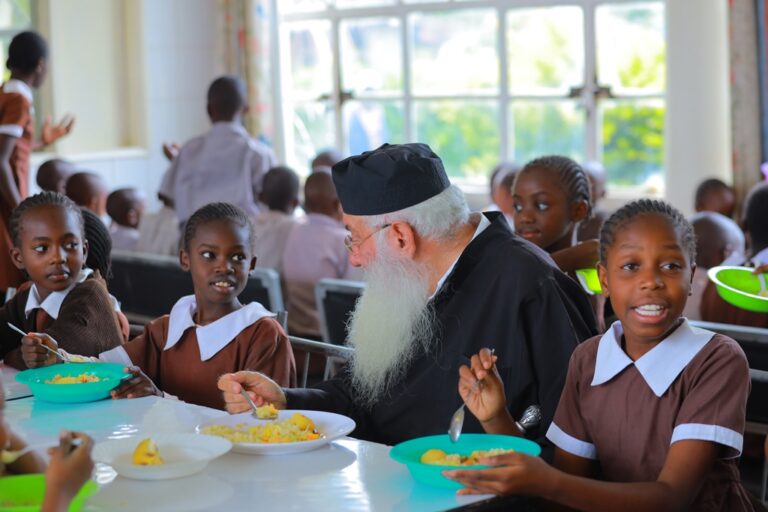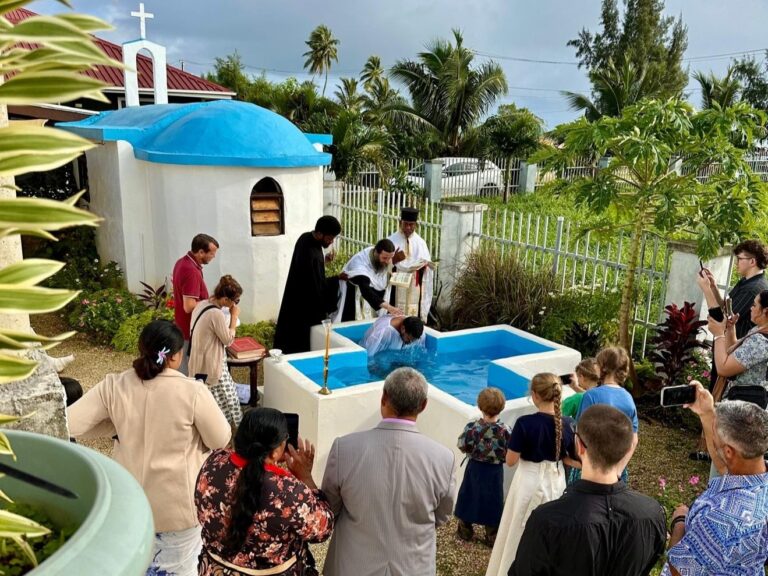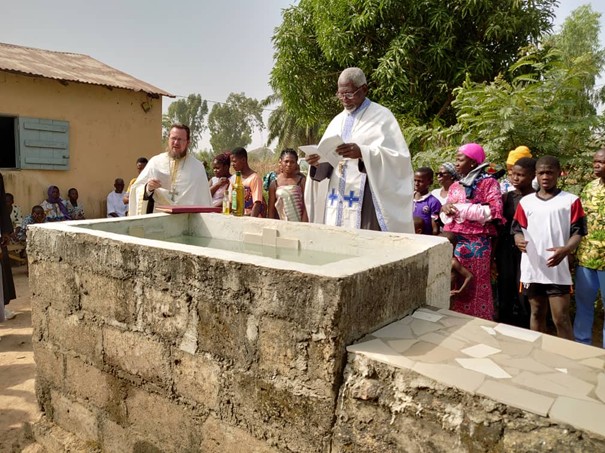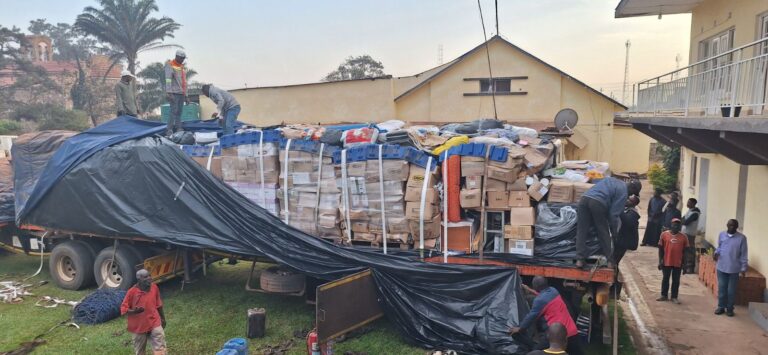PLEA FOR RWANDA
Blessed brothers, CHRIST IS RISEN!
The story of Rwanda is a painful one; perhaps the most painful story in the world with the largest genocide in history in 1994.
What was the cause? Racial discrimination, with the colonialists encouraging the divisions and conflicts between the Hutu and the Tutsi tribes. For 100 days the country was at the mercy of the manslayers. The result was 2 million people being slaughtered and another 8 million becoming refugees.
Rwanda is a small country, like Burundi, and has a population of 13 million people. After 30 years of peace, it has become the most developed country in Africa. When you enter the country and the capital city, you have the impression that you are in a European country.
Orthodoxy in Rwanda
Orthodoxy was actually started in 2012 by the then Metropolitan Innocentios of Burundi and Rwanda and was based in Bujumbura, Burundi. The 2,000 Greeks had established a large Community and had erected a Church in Bujumbura, which exists to this day, but in Kigali there were barely 100 expatriates.
In the 12 years of the Rwandan Mission, the current Metropolitan Innocentios of Sozousa ordained 10 Priests, 3 Deacons and 3 Sub-deacons and founded 3 Parishes and 13 Communities. He had great help from the Romanian Orthodox Church, which built three beauteous churches. Unfortunately he saw a lot of damage coming from the Orthodox Russians.
In October 2022 His Beatitude Patriarch Theodore of Alexandria visited the country for the first time, where he did the opening of the Church of the Holy Apostles Peter and Paul in Rwamagana; but when he visited Burundi at the end of November, His Eminence Innocentios submitted his resignation.
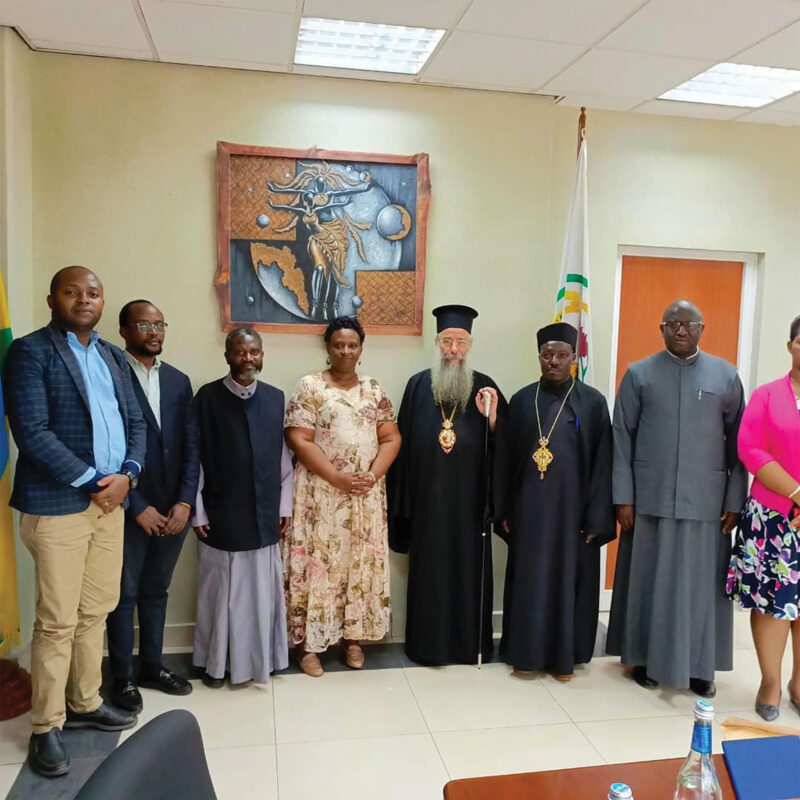
Establishment of the Diocese of Rwanda and Appointment of a Vicar General.
A very important day was February 15th, 2024, with the establishment of the Holy Diocese of Rwanda by the Holy Synod of the Patriarchate of Alexandria. As Archim. Nektarios Doumas from Romania did not accept his appointment, the Diocese was left acephalous and without a shepherd. His Beatitude, in his watchful care for his African flock, appointed on April 18th my humbleness as Vicar General of Rwanda. The Diocese of Rwanda borders the Diocese of Bukoba and Western Tanzania. Tanzania and Rwanda belong to the Union of East African States and are allies. In fact, thousands of Rwandans live in Tanzania, who fled during the years of the civil war. A large part of the population speaks Tanzanian Swahili.
I duly accepted the appointment and expressed my obedience and respect to His Beatitude for the trust, but also declared responsibility for the new ministry.
On 25-29/4 I visited Rwanda for the first time, where I immediately took care of the organization of the Diocese, held a Priestly Assembly, appointed the Diocesan Council and the Vicar, opened a Bank Account and arranged a meeting with the people through the tours to the Parishes with celebration of Divine Liturgies and Speeches.
The 4 Priests, 2 Deacons, 3 Sub-deacons and Catechists participated in the Priestly Assembly. There, I got to know the Mission members, but was also informed about the problems of the Diocese.
The peculiar issue with Rwanda is that the State does not allow temporary church buildings to operate, not even for catechisms. Thus, there are only 3 churches where Christians attend the Divine Liturgy. There are also 13 Parish Communities, which do not have a church for the sacred services. Even within the capital city Kigali, there is not a single church despite the fact that there are 4 Parish Communities.
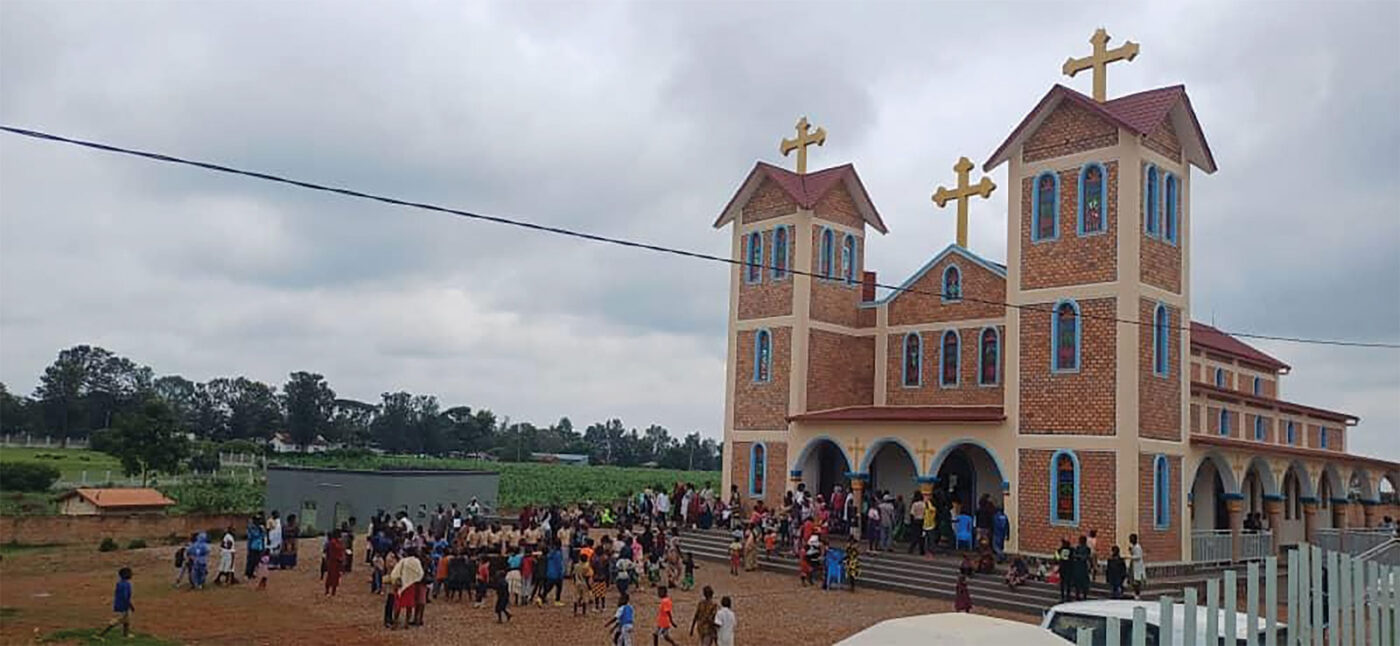
c. Immediate Needs
Thus it was decided to conduct Divine Liturgies and gatherings for catechisms in rented halls at least once a month. Each rental cost is €90. In total, we need €1200 for the rental and operation of the Missionary communities.
Of primary importance will be the Priestly Assemblies in the capital city Kigali, where there are also Orthodox believers of other nationalities, such as Greeks, Russians, Congolese, Tanzanians… The purpose is to create an Orthodox Parish and then to house the Episcopal Headquarters and the Diocesan offices there. For the adequacy of the liturgical, pastoral and missionary ministry, new ordinations need to be planned.
It is worth mentioning that the Government of Rwanda requires Priests to be graduates of a School of Theology. This will be solved in the long term with the operation of the Theological School in Mwanza, which we are preparing to operate in 2025.
However, we were confronted with the problem of the clergy payroll, which costs €936 per month. The building that was rented for the Episcopal headquarters and the guest house costs €360 per month and another €360 for staff, guard and housekeeper.
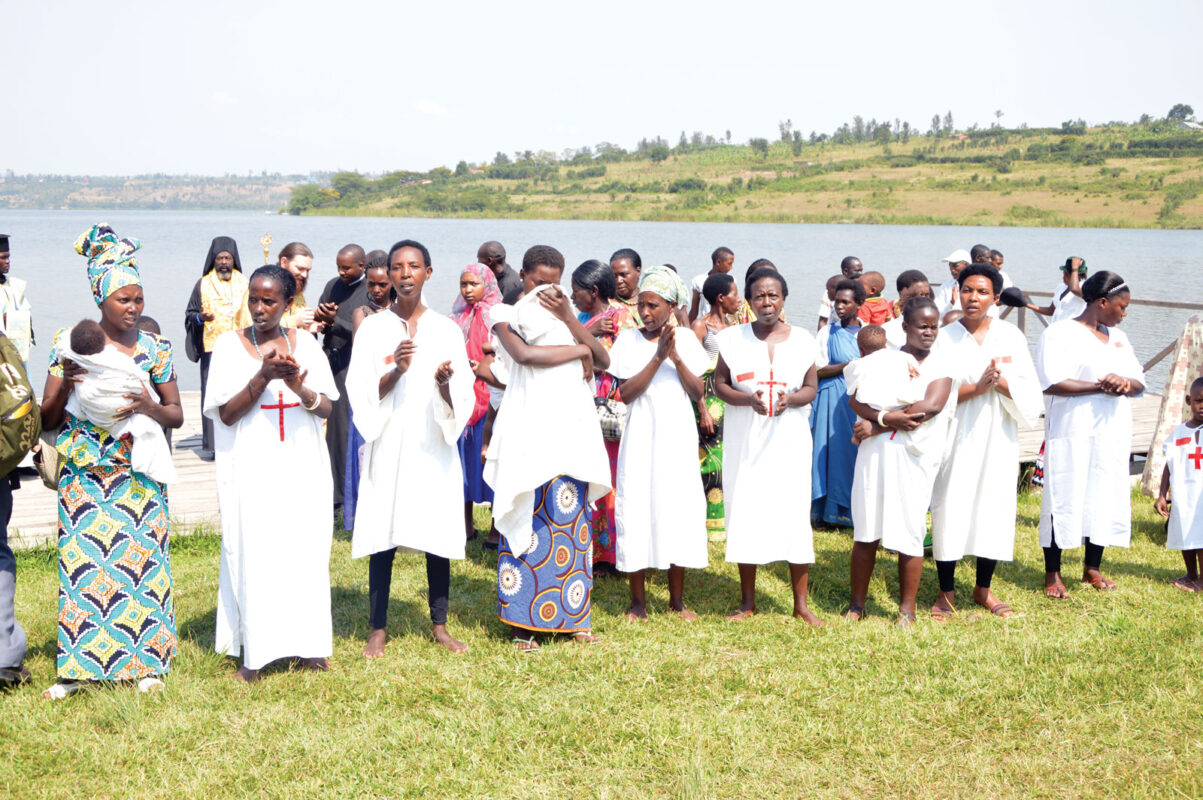
Street children
At this point I have to mention that everyone asked our Church to undertake a social project in order to be accepted by the State, which looks forward to the help of the Churches to deal with social problems.
Thus, we decided to help the street children who come and sleep in the courtyard of the Church of the Holy Apostles Peter and Paul of Rwamagana. This phenomenon is common in Africa. When a mother does not want a child, she says it is the devil’s kid and casts it out. These poor creatures live in the street and do street things. Our purpose is to give them food every noon and then find a place to house them, where they will live, go to school and will be taken care of by us. The cost for food, accommodation, school and healthcare comes to €3,500 per month.
This will promote the good image of our Church in the State and in the Rwandan society.
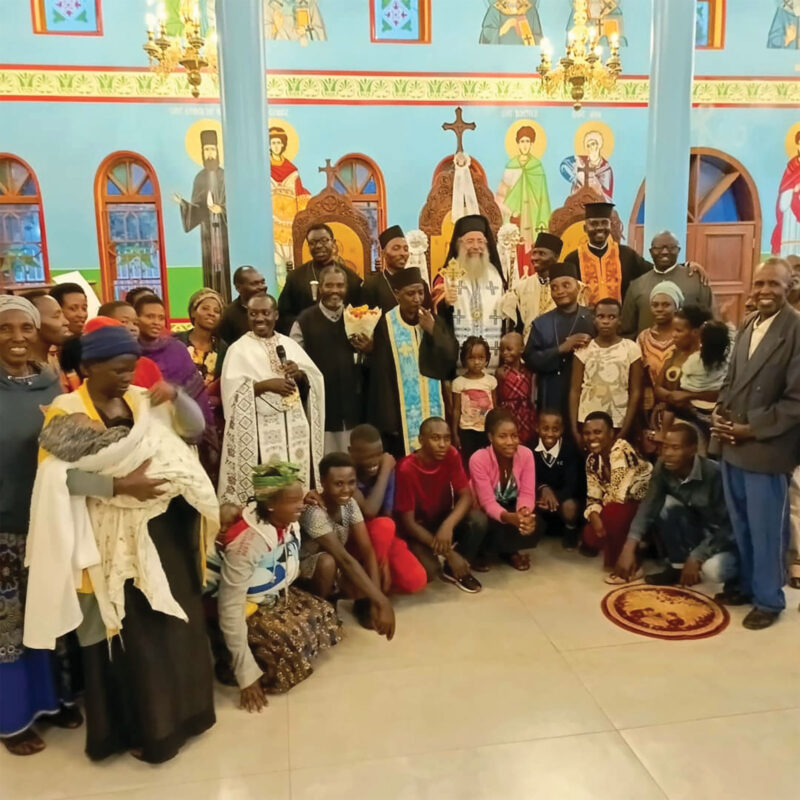
All in all, for a first function of the Bishopric and further development of the Mission, they need:
- €936 for clergy payroll
- €1200 rooms for Μass
- €720 for Diocese
- €3.500 for street children
- A total of €6,356 per month
The amount that will be collected by the friends of the Orthodox Mission Fraternity will allow us to move towards this goal.
The Mission is the fruit and result of the Resurrection of our Lord. It is based on the fact of the Resurrection and is strengthened thanks to the Resurrection
Pray that together with us our brothers from Rwanda will come to know “the Lord and the power of the Lord’s Resurrection” (Phil. 3:10), and that he will strengthen us in the difficult work of spreading the message of salvation “to the ends of the earth” (Acts 1:8).
Chrysostomos Bukoba
Patriarchal Commissioner

